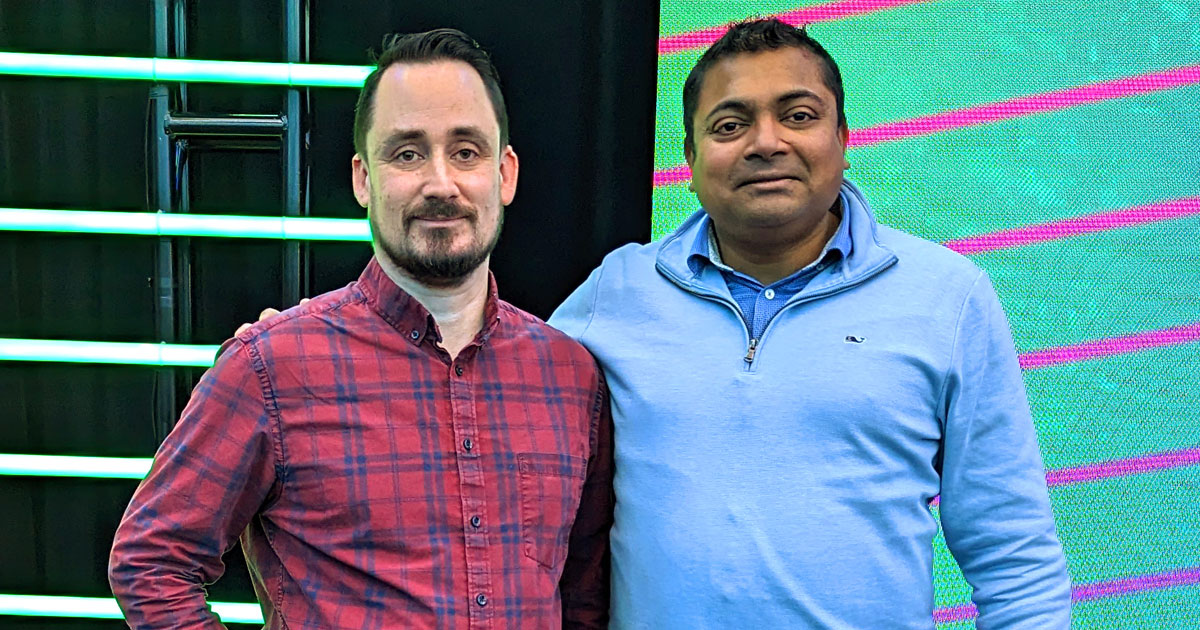Expanding Who Has the Opportunity to Be an Entrepreneur

When he first came to the United States from India, Havell Rodrigues MBA’03 was a believer in the American dream. Like many, he saw the country as a shining example of equality and opportunity. “I had this very idealistic view of the U.S.,” he says, “that if you work hard, you get a shot.”
Over time, however, he realized that reality was more complicated. Yes, hard work matters, but it is not always enough to get ahead. “Living here, I realized there are systemic reasons people don’t all have the same opportunities of wealth creation,” he says. “It is not the same level playing field we think it is.”
Following the murder of George Floyd in 2020, Rodrigues grew reflective. He thought about his life and the legacy he hoped to leave behind. He wanted to make a difference somehow. “I was initially very angry at what happened. I wanted to do something about it,” says Rodrigues, who has worked as a hedge fund of fund portfolio manager and risk manager and who has been involved with several startups. “That anger manifested in what we are doing now.”
What he is doing now is New Majority Capital, a Providence, Rhode Island, organization founded in 2021 that is dedicated to fostering financial equality. Co-founded with three others, including fellow Babson alumnus Kris Schumacher MBA’04, New Majority Capital seeks to provide underrepresented entrepreneurs, including people of color and women, with financial capital and business training, which is offered in partnership with Babson faculty.

Specifically, the organization helps entrepreneurs buy existing small businesses, typically from owners who are looking to retire. In upcoming years, millions of baby boomers are expected to step away from their businesses. “There is a window of opportunity that has opened up with the silver tsunami,” says Rodrigues, New Majority Capital’s CEO.
New Majority Capital has more than 200 BIPOC and women entrepreneurs in its pipeline, with about 10 closing deals on businesses in the next month or so, and the organization will soon have a $50 million fund to support entrepreneurs. The organization provides up to 100 percent of the money needed to acquire a business, which entrepreneurs can pay back as a set percentage of their profits. It also offers no-interest loans to cover short-term expenses.
New Majority Capital’s investment philosophy is to be patient and “non-extractive,” Rodrigues says. It doesn’t expect repayments that are a burden to the borrower. “It’s not about maximizing returns,” Rodrigues says. “It’s about maximizing impact.”
A Less Risky Approach
Before founding New Majority Capital, Rodrigues and Schumacher had a series of conversations about what they were hoping to accomplish. As Babson graduates, they naturally talked about entrepreneurship.
“Babson put that entrepreneurial thought in our brain,” Rodrigues says. “Babson also taught us you can be entrepreneurs of all kinds. That framed our thinking.”

They hoped to find the most effective way to create wealth and opportunity. That meant not simply investing in startups. “I didn’t want to be unicorn hunting,” says Schumacher, a consultant to entrepreneurs and investors who has worked in sales, finance, and operations in various industries. “I didn’t want to be in a situation where it was one out of only 10 entrepreneurs who are successful.”
Ultimately, they landed on entrepreneurship through acquisition. “It’s less risky than starting a business from scratch,” Schumacher says.
It’s also an approach that addresses a great need. Aging small business owners are proud of having started their ventures, but if their children don’t want to take over, they may be unsure of what to do next. “They may have a couple of years left and they don’t have a succession plan in place, but they want to leave that legacy,” Schumacher says. “At the very least, they want their employees to be looked after.”
This is where New Majority Capital can play a pivotal role. It not only gives budding entrepreneurs needed financing and knowledge as they seek to buy a small business, but it also gives them credibility.
“They represent themselves as the best person to take the business to the next level, with our support,” Schumacher says. “Appearing as credible can be a hurdle. BIPOC and women entrepreneurs have a higher burden to face than white guys do. They are judged harsher. I see it every single day, and it is a fact, but it is a fact we can mitigate by being there.”
A Perfect Partner
Just as with Rodrigues, the founding of New Majority Capital was personal for Schumacher. He grew up hearing stories about the challenges that his grandfather and other family members faced years ago when they emigrated from Italy. Many started their own businesses because no one else would hire them.
Marrying into a Black family, Schumacher now has witnessed discrimination firsthand. “I see very clearly the glass ceiling they face,” he says. “I see my wife’s side of the family, and people in my day-to-day life, struggling to realize their potential. They are not given the opportunity, quite frankly. I know for a fact they could run a business and do very well.”
“Babson put that entrepreneurial thought in our brain. Babson also taught us you can be entrepreneurs of all kinds. That framed our thinking.”
Havell Rodrigues MBA’03, co-founder and CEO of New Majority Capital
For entrepreneurs of color and women, finding investors can be difficult. Investors, who are often older white males, typically end up investing in entrepreneurs from similar backgrounds. “They don’t understand how to invest in people who don’t look like them,” Schumacher says.
Working with New Majority Capital to help increase investment in underrepresented entrepreneurs are Babson faculty members. With their support, the organization offers two free educational programs: one for entrepreneurs seeking to buy a business, and another on succession planning for existing business owners. Those programs are essential to the organization’s mission. “Babson faculty are a perfect partner,” Rodrigues says.
Posted in Entrepreneurial Leadership, Outcomes






